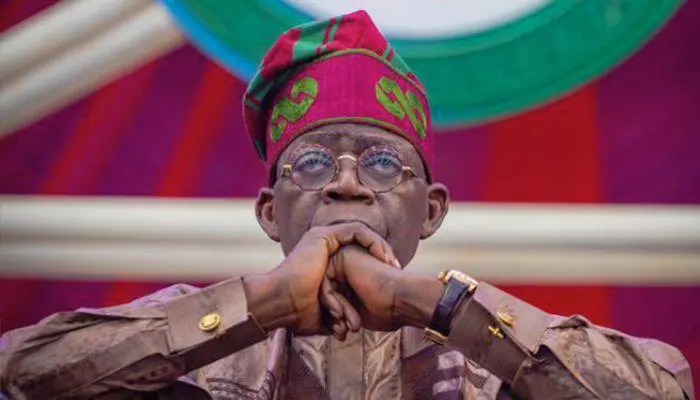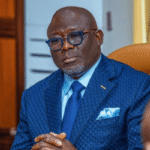When the Federal Government announced the latest round of presidential pardons, freeing several convicted murderers, drug traffickers, and long-term inmates on death row, the nation erupted in anger.
What was framed as a gesture of compassion quickly morphed into one of the most divisive national debates in recent years, shaking confidence in Nigeria’s justice system and stirring questions about whether mercy, in this case, has been dangerously misplaced.
The Presidency described the decision as a humanitarian act intended to decongest prisons, offer second chances, and uphold Nigeria’s image as a reforming democracy. But across the country, victims’ families, civil society groups, and legal experts are asking the same uneasy question: at what cost?
The announcement followed a recommendation from the Presidential Advisory Committee on the Prerogative of Mercy (PACPM), which reportedly reviewed hundreds of applications from correctional centres across the federation. Among those granted clemency were inmates serving life terms for homicide and others convicted for large-scale narcotics trafficking; crimes considered among the most heinous in Nigerian law.
In previous years, presidential pardons have mostly targeted aged or terminally ill inmates. This time, the inclusion of those convicted of violent crimes and drug-related offences set off alarm bells. Families of murder victims were among the first to express outrage.
“My son was stabbed to death by a man who was later sentenced to die,” said Mrs. Folake Adedeji, who lost her only child to a cult-related killing in 2015. “Now, the same man is free because someone signed a piece of paper. Is that justice or mockery?”
Social media platforms amplified the discontent, with hashtags like #JusticeNotMercy and #WhoDeservesPardon trending for days. Many Nigerians wondered aloud whether the state had abandoned its duty to victims in pursuit of political optics.
Under Section 175 of the 1999 Constitution, the President has the power to grant pardons, reprieves, or commute sentences for federal offences. In principle, the prerogative of mercy exists to correct judicial excesses, acknowledge genuine rehabilitation, or reflect national reconciliation.
But critics argue that the spirit of the law is being distorted.
“Executive clemency is not supposed to be an escape hatch for politically connected offenders,” said Professor Miriam, a constitutional scholar at the University of Lagos. “The framers of the Constitution never intended for the President to act as a super-judge over established convictions. Mercy must not override justice.”
Her point echoes a long-standing debate about the lack of transparency in the clemency process. The PACPM operates largely behind closed doors, and the public rarely sees its deliberations, risk assessments, or justifications. “If a man convicted of murder or drug trafficking is to be released,” Miriam added, “the public deserves to know why—and what safeguards are in place to prevent relapse.”
The decision comes less than a year before major elections, fuelling speculation that political motivations may be at play. Some of the pardoned individuals, according to insiders, have ties to influential political figures or hail from constituencies crucial to upcoming contests.
“This kind of pardon sends the wrong signal,” said Dr. Yemi Adefarasin, a governance analyst and former adviser at the Policy Reform Institute. “It reinforces the belief that politics trumps justice in Nigeria. Mercy should not be dispensed as a campaign strategy or a bargaining chip.”
Observers recall a similar uproar in 2013 when the administration of then-President Goodluck Jonathan granted pardon to former governors convicted of corruption. Critics warned then that clemency for high-profile offenders erodes deterrence. A decade later, the pattern appears to persist—only this time, the crimes involved are bloodier and the moral stakes higher.
The inclusion of convicted drug barons among those pardoned has also rattled Nigeria’s anti-narcotics community. Over the past few years, the National Drug Law Enforcement Agency (NDLEA) has recorded historic seizures and arrests, earning praise both locally and abroad.
“Freeing convicted traffickers undermines everything we’ve worked for,” said a senior NDLEA officer who requested anonymity. “These individuals destroyed lives and communities through their trade. To pardon them is to dishonour the sacrifices of officers who risked—and sometimes lost— their lives to arrest them.”
The agency’s concern is not unfounded. Nigeria’s drug crisis, particularly among youths, has deepened. A 2024 UNODC report placed Nigeria among the top three countries in Africa for drug consumption. For many Nigerians, the government’s gesture contradicts its rhetoric of waging an “uncompromising war” on drugs.
Beyond moral outrage, there are legitimate fears that the pardons could fuel insecurity. Studies show that Nigeria has one of Africa’s highest recidivism rates, with an estimated 70% of released convicts reoffending within three years.
“Without post-release supervision, rehabilitation, or tracking, these pardons could unleash more danger on society,” warned Dr. Adekunle, a criminologist at the Centre for Security Studies. “The government must publish a reintegration plan—if there is one—otherwise it risks turning an act of mercy into a security nightmare.”
His warning is echoed by community leaders in states already struggling with cultism, kidnapping, and drug-fuelled violence. “How do you pardon men who killed our sons and still expect peace?” asked Chief Nnaji from Anambra State. “Forgiveness is divine, but governance is about accountability.”
Defending the decision, a senior government spokesperson explained that most pardoned inmates had served substantial portions of their sentences and demonstrated “remarkable repentance.” He added that prison congestion, health conditions, and humanitarian considerations influenced the President’s approval.
“Our correctional facilities are bursting at the seams,” the official said. “Some of these inmates have been behind bars for decades. The President acted within the law and with compassion.”
Indeed, Nigeria’s 244 correctional centres are operating at nearly 170% capacity, holding about 76,000 inmates, of which more than 70% are awaiting trial. Human rights groups have long condemned the conditions as inhumane.
Still, many Nigerians see selective mercy at play. “If decongestion is the goal, why not free non-violent offenders or those awaiting trial for minor crimes?” asked Ngozi Udo, Executive Director of the Human Rights Accountability Network. “We have people languishing in jail over ₦5,000 thefts. Yet, the powerful walk free. That’s not justice—it’s privilege.”
Lost amid the legal and political arguments are the victims— the silent casualties of the state’s compassion. Many families say they were neither consulted nor notified before the pardons were announced.
“It feels like our pain doesn’t matter,” said Barrister Sani Nuhu, a victims’ rights advocate. “Mercy, when not balanced by justice, becomes cruelty to victims. The state cannot preach forgiveness on behalf of those who still mourn.”
Psychologists also warn that such decisions can reopen trauma and erode trust in public institutions. “Justice has a healing function,” said Dr. Abiola, a forensic psychologist. “When that process is abruptly reversed, victims relive the injury—only this time, inflicted by the system itself.”
Faith, Forgiveness, and the Debate Over Redemption
Nigeria’s deeply religious society is itself divided over the pardons. While some clerics hail the move as a reflection of divine forgiveness, others caution that mercy without restitution defies moral order.
“The Bible teaches mercy, yes, but it also insists on repentance and restitution,” said Rev. Oladele of the Christian Council of Nigeria. “A murderer who has not sought reconciliation with the victim’s family cannot claim true repentance. Mercy must not cheapen morality.”
From the Islamic perspective, some scholars also question whether the state can forgive what it did not suffer. “In Shariah, crimes like murder require justice to the victim’s family,” explained Sheik Musa, an Islamic jurist. “Forgiveness belongs to those wronged, not to political office holders.”
Experts Call for Reform and Transparency
In the wake of public outcry, several lawyers and lawmakers are calling for reforms to the Prerogative of Mercy Act to make the process more transparent. They are urging the government to publish the names and offences of all pardoned convicts, allow victims or their families to make representations before decisions are finalized, and establish an independent review board with representation from civil society and the judiciary.
“Clemency should be guided by evidence, not emotion,” argued Emeka Chuks, SAN, a constitutional lawyer. “Otherwise, it becomes an instrument of impunity. The President’s mercy must complement, not contradict, justice.”





